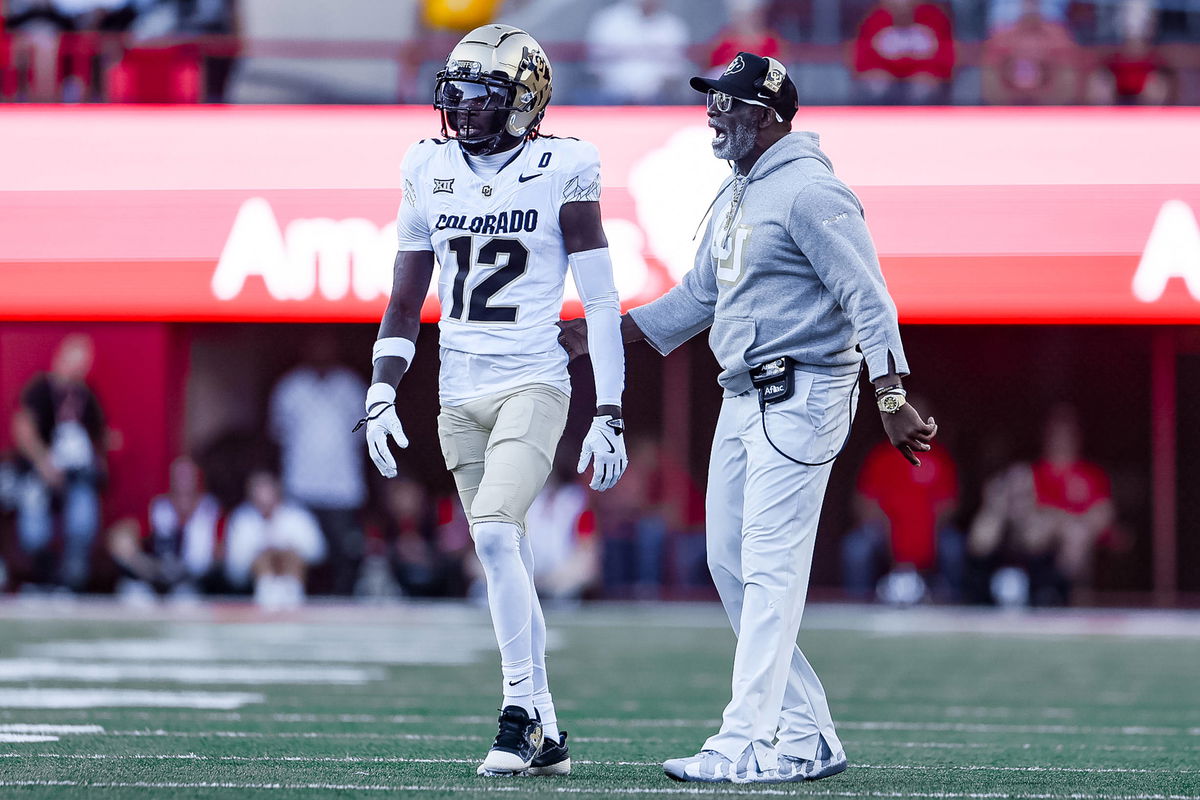Shedeur Sanders’ replacement has already stirred things up in Boulder, with Julian Lewis and Kaidon Salter setting the stage for a heated QB battle. But while that competition brews, another headline is taking shape—yep, it’s Travis Hunter again. The conversation around Deion Sanders’ Colorado program keeps circling back to his two-way phenom. Sanders recently made waves by doubling down on his belief that Hunter isn’t just a corner or a receiver—he’s both. And not just occasionally, but full-time.
“It’s not like it hasn’t been done, but he’s done it at a whole other level in college,” Deion told Yahoo Sports. “So why not?” It’s a rhetorical question that feels like a challenge to conventional NFL thinking. But as the Buffaloes stare down voids in their depth chart, the spotlight isn’t just on replacing Hunter’s versatility—it’s on plugging real gaps with immediate impact transfers, and one specific void is already forcing some urgency behind the scenes.
That need? Tight end. And with Sam Hart officially no longer part of the program, Buff insiders say Colorado has no choice but to hit the transfer portal hard when it reopens to undergrads next Wednesday. “That’s a position you got to bring somebody in,” Adam Munsterteiger said, pointing to Hart’s torn ACL from last year and his limited action even before the injury.
Brian Howell added, “He didn’t play a lot before he got hurt last year on offense and obviously they didn’t use the tight end with all the receivers. Sam was behind Sav’ell [Smalls] last year.” Colorado hasn’t leaned on TEs often in Shedeur Sanders’ air-it-out system, but the loss of Hart, even as a depth piece, leaves them thin at a position that still plays a pivotal role in both run blocking and red zone sets. “Hopefully I would like to see them at least get one more tight end,” Howell added, “a guy that’s got some experience.” Translation: this isn’t a want—it’s a need.
Yet the most intriguing piece of CU’s 2025 puzzle is the defensive backfield. And while Travis Hunter’s two-way brilliance is irreplaceable in a vacuum, the Buffs do have some promising names ready to make a statement. “You don’t have Travis Hunter anymore,” Howell admitted, “but you still have DJ McKinney, Colton Hood and R.J. Johnson.” The emphasis was particularly placed on RJ Johnson, who appears to be making the leap Colorado hoped for. “RJ Johnson has taken that step that we’ve talked about,” the Buffs insider said, signaling real growth from the sophomore.
There’s also Preston Hodge, who’s seen a resurgence thanks to a Juco eligibility rule. “He thought he was done, he’s now here because of the JUCO rule, but he sees a different hunger in Preston,” they added. “I bet we see a different type of guy this year.” There’s quiet optimism here—no one’s claiming a one-for-one Hunter replacement exists. But there’s enough buzz around this revamped secondary to suggest a new identity is forming.
BOULDER, COLORADO – OCTOBER 13: Head coach Deion Sanders embraces Travis Hunter #12 of the Colorado Buffaloes after his touchdown in the first quarter against the Stanford Cardinal at Folsom Field on October 13, 2023 in Boulder, Colorado. (Photo by Justin Tafoya/Getty Images)
That said, Deion Sanders’ faith in Hunter wasn’t just lip service—it was a declaration. In the modern era of football specialization, few dare to suggest that a player could start on offense and defense in the pros. But Deion? He’s not wired like most coaches. “He’s done it at a whole other level in college,” he said, pointing out that Hunter’s ability isn’t just about flash—it’s about sustained, high-level execution. And he’s not wrong. Hunter didn’t just moonlight on defense; he locked down top receivers. His usage pushed the limits of what was considered physically and tactically feasible, and still, he thrived.
There’s no doubt that players like Johnson and Hodge are on the right path and perhaps capable of carving out their own chapters. But for a team still building in the trenches, particularly at tight end, the spring portal window is no longer just about luxury—it’s survival. With Hunter gone, Colorado loses a unicorn, a two-way maestro who turned games with a single snap.
Deion Sanders explains why NFL won’t overwhelm his two-way star
Hunter was used for 688 snaps on defense and 672 on offense last season, an average of 104.6 snaps per game. It’s not like Sanders thought that it was too much or that he couldn’t replicate that in the NFL. If you’re worried about Travis Hunter pulling double duty in the NFL, Coach Prime’s got something to say—and it might surprise you.
According to Deion Sanders, the pros are actually easier on the body than college football. Yep, you read that right. “The thing about the college game is it’s much faster than the pro game,” Sanders said. “The pro game is much slower than the collegiate game, because in college you have tempo. Nobody is huddling. Everything is done at the line now. The play is off 15, 17 seconds after the last play.”
In contrast, the NFL moves at a more methodical pace, giving players time to breathe, think—and recover. “The pros aren’t like that. You go into a huddle, man. You get time,” Sanders added. And it’s not just about tempo. Sanders also believes the NFL is simply safer. “It’s a whole different game, it’s a much safer game,” he told McDonald, pointing out that DBs can’t deliver those brutal hits like they used to.
The post Deion Sanders Urged to Make Desperate Transfer Portal Call After Stance on Travis Hunter Replacement Cleared appeared first on EssentiallySports.
